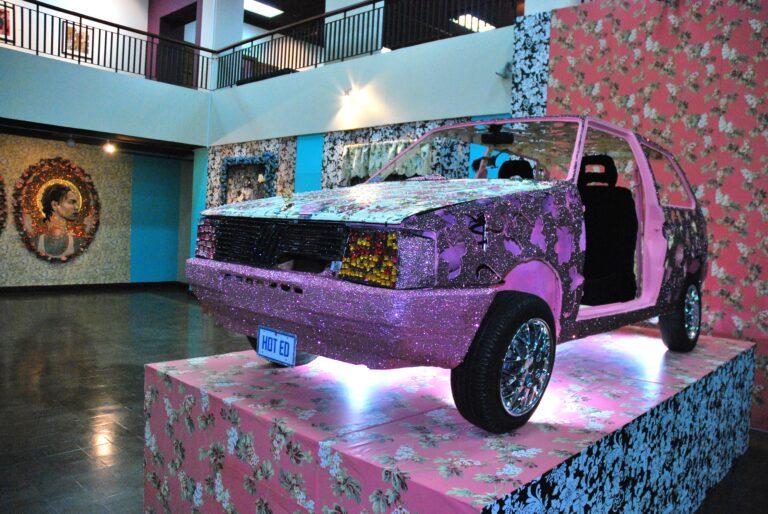Heroes shining for a diamond: An Independence moment

What makes a hero relevant to the birth stages of an independent nation may not be the same qualities which are lionized at later stages in its development. It is something to keep in mind as Senator Floyd Morris’ motion to add sprinter Usain Bolt and cultural standouts Louise Bennett-Coverley, Jimmy Cliff and Bob Marley to Jamaica’s stock of National Heroes fires or fizzles (in part or as a whole).
Case in point – Rihanna is a hottie, a requirement for the business of entertainment which is the basis of her fortune, fame and heroism. Even in the pre-metaverse communications environment, the look matters much (leading to the required mass of ‘likes’ on the social media platform of choice). At 33 years old, Rihanna is also young (although the 18 year-old hotters will call her a ‘big woman’), appealing directly to the numerically dominant demographic of the Caribbean society. More importantly, as a billionaire in greenbacks she is rolling in dough, an accessory which is often (though incorrectly) interchanged with a far more nuanced achievement, success. Nanny of the Maroons, Jamaica’s sole National Heroine, is none of the above.
So, although they are different Caribbean islands, there may be a lesson in what makes a hero at different stages of a nation’s history. During the British terrorism, blithely called colonialism, we needed a woman who reputedly caught bullets with her backside as the myth of Nanny’s prowess goes. On the post-independence road to prosperity, we need women who can catch attention with their backsides. And if that is a criterion, Senator Morris is on the wrong path and would be advised to switch to Spice (if you do not believe, watch the ‘Go Dung Deh’ video).
In terms of youth, from the suggestions only Usain Bolt qualifies (although Bob Marley did die at 36 years old and is forever frozen in pre middle-aged images). However, speaking of the Gong, I remember a Digicel-sponsored Bob Marley birthday bash at Sabina Park while Buju Banton was incarcerated and the performers turned it into a Buju Banton tribute as much as a Bob Marley tribute, the audience’s very strong positive response indicating support for the adjustment. Considering Jamaica’s low vaccination rate and the Gargamel’s loudly and liberally stated ant-vaccination stance, coupled with his Festival Song Competition win last year with “I am a Jamaican” and the astonishing turnout for the Kingston leg of his ‘Long Walk to Freedom’ tour in 2019 (ah, those cell phone lights at the National Stadium), maybe Buju is as much a hero to a cross-section of Jamaicans as Bob. Should we add him to the suggestions? He gotta be rich too, which as we lurch towards the Vision 2030 of making Jamaica “the place of choice to live, work, raise families and do business”.
As Buju sings at the end of “Untold Stories”, I could go on and on, the full has never been told, but even a tenth will suffice to indicate that as Barbados has made Rihanna a national hero (am I the only one who has not seen her tagged as a heroine?) and part of our reaction is a revival of debating whether Bob and Miss Lou should be heroes and adding Cliff and Bolt, we must be mindful of who is truly relevant at this stage in our history to those in the Jamaican population who will be alive and active in as early as 2050.
I hope I am not the only one who has made the diamond connection, as one of Rihanna’s very popular songs is “Diamonds” (it has 1.8 billion views on her YouTube channel) and Jamaica’s 60th anniversary of Independence on 6 August 2022, will be the diamond celebration. A final thought – Rihanna’s “Man Down” video was shot in Jamaica, with a woman exacting vengeance on someone who sexually assaulted her. In that vein, with the abhorrent levels of men assaulting and killing their female partners or ex-partners in Jamaica (and it very much goes the other way as well), should we consider at least some honours, if not hero status, for a woman who does in real life what is played out in Rihanna’s video? Man down, woman up.
Mel Cooke covered Jamaican entertainment as a print journalist for almost two decades, overlapping with his MPhil research on dancehall and experiential marketing with the Institute of Caribbean Studies, UWI, Mona, where he is now working on a PhD while lecturing in the Bachelor of Arts, Communication Arts and Technology (BACAT) programme at the University of Technology, Jamaica (UTech, Ja.).






